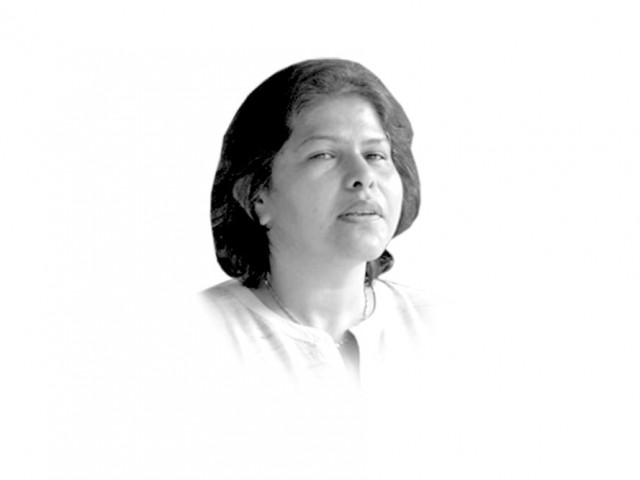How to make a leader at home
One really wishes the young PPP leadership well and hopes it discovers the real issues and challenges in Sindh.

The writer is an independent social scientist and author of Military Inc.
But explaining the PPP’s ideological significance then is not the purpose of the piece. It is basically to draw the good professor’s attention towards the new reality that we live through: an age in which leaders seem to grow, not on the basis of ideology (or just ideology), but a lot of good marketing through media. Media has produced many leaders. It has turned generalists and many mediocres into most-coveted scholars, analysts and experts. Television cameras certainly do wonders, including selling you as a true believer especially when you say your prayers in the glare of television cameras. So, all you need to do is appear on the cover of a lot of important foreign magazines’ local franchises and get shown around on television screens 24/7 to be pronounced a leader with promise. At least the coterie of supporters or sycophants will convince you that you have made it. This formula does not require hard work on ideology. Or even if you do manage an ideology, it can be easily cushioned with slogans to avoid the rude shock that comes with having an ideology — the need to fulfil promises.
Even if getting rid of rising extremism is the newfound ideology, the goal needs firm commitment. Many have appreciated Bilawal Bhutto Zardari’s loud condemnation of militancy in the country at a time when other leaders have kept silent. But then in an interview to an Indian journalist, Suhasni Haider, the young Bhutto-Zardari did say that his was not an open challenge to the militants. So, if it is not that then what else justifies this lavish expenditure of public funds? After all, Sindh has an indigenous culture of festivals where ordinary people participate, even those who cannot afford to buy expensive tickets for some of the events listed as part of the ongoing Sindh Festival.
Right now, the marketing team seems very high on creating opportunities for media galore, even pushing journals and journalists to do a cover page. However, young Bilawal must reach out for an ideology, which means doing real things that deserve a splash on the cover page.
For instance, what about uplifting the conditions of people from the Makran coast — whose tradition is the donkey race — some of whom live in Lyari in dire straits. Again, Mubarak village where the deep-sea fishing competition took place is located 30km from Karachi and is deprived of a jetty, which means these people cannot even make it to the hospital in time. Over the years, the navy has pushed the people inland even selling sand around them. The lifting of sand has worsened the condition of the road from Mubarak village to main Hawksbay.
Similarly, what the poor people in Sindh and Punjab deserve is better distribution of land and other resources required to make land cultivable. I was recently talking to a few women in a small village in Punjab asking them about problems that the area faced. I thought they would tell me about the poor quality of water, lack of employment, poverty, etc. Of course, they did mention poverty, however, they started with talking about the humiliation of passing through the land of big landowners around them. Since there was no approved road from where they lived to the main road in the area, they were forced to pass through the big landowner’s land, who would embarrass them often by denying access according to his whim. They were also bitter that they could not even buy land because whenever land came up for sale, the rich landowners were the first to buy, leaving the poor with no opportunity for ownership. The conditions in Sindh are equally unenviable.
It doesn’t take rocket science to figure out that people in this country badly need equitable or better distribution of land. The agenda, nevertheless, is very tough to implement and especially tough on friendships and associations of the young Bhutto-Zardari.
But even if he were to stick to the original plan of fighting extremism, the first and foremost task is to ascertain which of his party stalwarts have links with militant groups and their supporters. It is not an odd request because if Bilawal would ask Rehman Malik, he will find out details of the deal struck with the Lal Masjid cleric and his wife under which the mosque was reconstructed and the cleric reinstated. Even Umme Hassan went around South Punjab and other places collecting funds and recruiting women. In addition, the state of religious minorities in Sindh is increasingly becoming precarious. History shows that a lot of Muslim landlords in Sindh were eager to seek independence to get rid of Hindu moneylenders and capitalists. It is still material reasons that provoke a lot of activities against these minorities.
But one really wishes the young PPP leadership well and hopes it discovers the real issues and challenges in Sindh and the country at large. Meanwhile, one would prod the professor again to revisit his theory, that is, in case the new leadership proves to be nothing but media blitz.
Published in The Express Tribune, February 13th, 2014.
Like Opinion & Editorial on Facebook, follow @ETOpEd on Twitter to receive all updates on all our daily pieces.















COMMENTS
Comments are moderated and generally will be posted if they are on-topic and not abusive.
For more information, please see our Comments FAQ